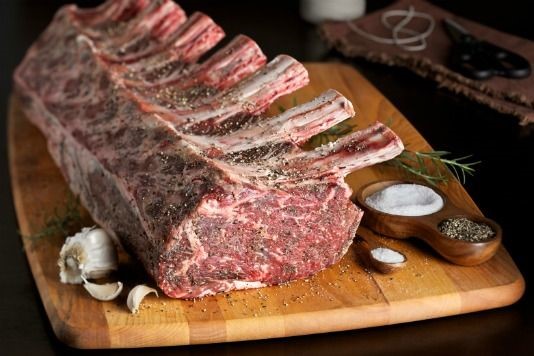Call to change our “unhealthy and unsustainable” diet

A healthy eating organisation is calling for us to cut back on meat to be healthier and help the planet.
Looking for a meaningful resolution to start the year? A new report entitled Let’s Talk About Meat from a cross-charity and health collective called Eating Better says it is now critical that what it calls the UK’s “unhealthy and unsustainable” meat-heavy diet quickly shifts in a more environmentally-friendly direction.
It has some good advice to impart not only to people looking to shift a bit of Christmas weight, but for all of us to ensure the sustainability of food sources and food chains.
Eating Better is an alliance of organisations including Compassion in World Farming, Oxfam, WWF-UK and the UK Health Forum. It is chaired by Friends of the Earth.
Its report's findings align with those of another recent report published by National Geographic, which said although sustainable eating habits are getting better, they're not improving nearly fast enough.
Meat: the big issue
The key focus of the Eating Better report is meat. Average global meat consumption has doubled in the past 50 years, partially due to the global population becoming more affluent over time.
It says unless changes to the actual content of our diet are made, sustainably feeding a global population projected to surpass nine billion by 2050 will be impossible. An increase of over 200 million tonnes to reach 470 million tonnes of meat in total would be necessary, according to the Food and Agriculture Organization of the United Nations.
Eating Better is trying to convince Government figures to respond to its call for changes to food policy and to both actively promote sustainable habits via the National Curriculum and supply the public with practical advice on how to eat less meat.
At the same time, it’s also appealing to the food industry to support dietary changes, supporting farmers producing ‘better’ meat (the report defines ‘better’ as meat that comes from organic sources with high welfare standards), and making low-meat and meat-free options more attractive and more widely available.
Of more interest at an everyday level for those who aren’t in the industry or Government are the points that a diet which contains less meat has financial, as well as health, benefits. Lower meat diets, says the report, can enable ‘better’ meat choices as people will spend more each time they buy meat, but they will buy it less regularly. So overall you’ll save money and know that you’re supporting ethical and environmentally-friendly farming methods.
The report also cites compelling research from Oxford University that found that eating meat no more than three times a week and replacing meat in other meals with plant-based foods would prevent 45,000 early deaths a year in the UK alone, saving the NHS £1.2 billion a year.
Are we aware of the problems?
In general, it seems that a worryingly low proportion of us, just 28%, agree that livestock production has a significant impact on the environment. Men are more likely to eat more meat than women, particularly when it comes to red meat, and are also less willing to change their habits and eat less meat in general.
This is why it’s crucial that governments around the world take notice of Eating Better’s report. A generational difference in habits appears to be emerging, with young people more willing to adopt a low- or no-meat diet, and if action is taken to secure this pattern of behaviour it could cement the habits of future generations too.
The future of meat consumption
There is some good news along with the call for action. A recent YouGov survey undertaken on Eating Better’s behalf showed that over a third (35%) of us are willing to change our habits and eat less meat, while one in five said they had already had cut back over the last year. However, 5% said the amount of meat they were eating was increasing.
Sue Dibb, report author and co-ordinator of Eating Better, said that “eating less meat is a simple way for people to benefit their health and the health of the planet.” A ‘flexitarian’ approach to eating in which people have “meat-free days and enjoy better quality meat in smaller portions” should be the way of life for many of us if we want a sustainable future.
“Eating less and better meat is becoming trendy thanks to top chefs putting vegetables centre-plate,” Sue continues. “But much more is needed to take this mainstream: that’s why, as our report says, we need to talk about meat.”
Are you eating less meat? How should the Government act to encourage more sustainable diets across the country? What else needs to be considered beside just meat consumption? Let us know your thoughts in the Comments below.
You might also like:
Sustainable eating habits improving - but not quickly enough
Most Recent
Comments
Be the first to comment
Do you want to comment on this article? You need to be signed in for this feature








